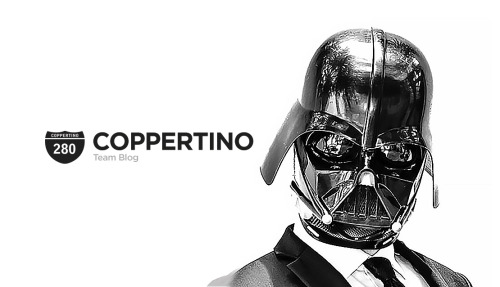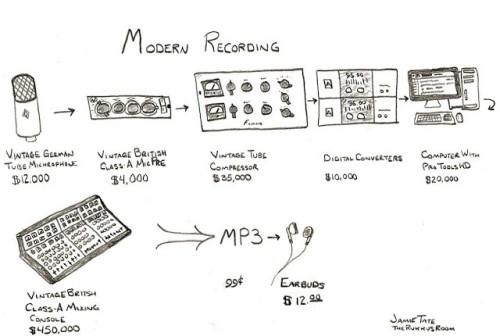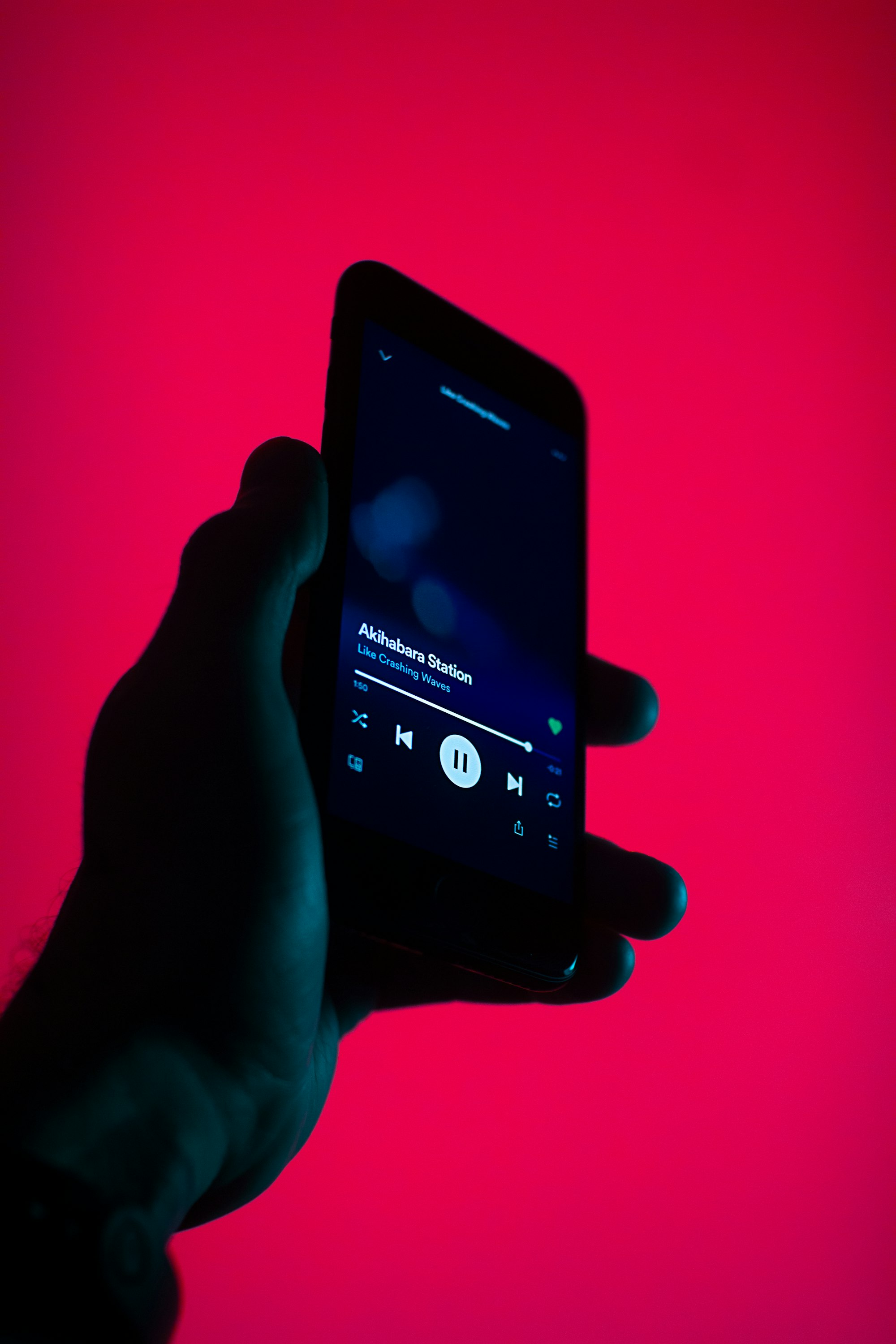Coppertino Team Blog: Developing VOX Like “Impossible Is Nothing”

Hello, guys!
My name is Oleg. It’s been two years that I’ve been busy working at Coppertino developing VOX audio engine. Was it hard? Yeah, pretty much. I didn’t give up on it, though. Let me tell you why in this 5-minute long story.
It was more about music than tech from the very beginning…
As many might suspect, I wasn’t an audio engine architect at the very beginning of my career. Everything started with the passion for creativity and technologies. I always knew my life would be connected to music and everything closely related to it. Having gained Bachelor’s degree in Acoustics and Electronics, I spent some of my study time getting acquainted with programming languages. Hence, I consider myself self-educated in programming. It was my interest in audio specifics in the first place that let me embrace the power of computing and what it could do to empower the music sphere. The urge to enhance music world led me to finding the ways to express my ideas through programming.
In early school years I totally loved discovering new programmable electronics — first, programmable calculators, then — first Spectrum computers. My family background and the area I lived in pushed me towards creativity in technologies. That’s why as a child I was pretty busy building electronic devices and witnessing computer technologies progressing daily.
First steps
First steps in serious programming were made when I worked as a sound system engineer in the professional audio industry. It was time when computers were becoming more personal, audio processing moved substantially into the digital domain, and this rise of digital technology brought the whole music industry to the next level. All this would be impossible without software, of course. The majority of the existing software packages for the acoustic measurement and prediction were very expensive and not very user-friendly, intended just for use with proprietary hardware or otherwise available only to the large companies. Good studio multichannel recording package would cost up to several thousands of dollars, and professional CAD software would cost even more. I had some ideas about creating applications for sound reinforcement/concert audio industry. I wanted to develop such applications to reinforce the power of sound. This willingness, in combination with the rise of the Internet power and the opportunity to get needed knowledge in programming online led me to studying programing and holding the experiments in harnessing the audio computing powers. One of my first app ideas was…. (don’t you be too surprised now) a music player! Though, not similar to VOX. I was thinking of a multi-zone PC playback solution that could play different tracks in different spaces or rooms.
Joining Coppertino
Before Coppertino I worked in several tech startups in the field of audio technology and education. I find out about Coppertino for a year or so before I joined the team. I downloaded VOX and wanted to know who made it. Surprisingly, the dev team was located in my native city. I kinda liked the name because it sounded almost like the hometown of Apple Inc.:) And I also liked the name of the player because it reminded me one legendary music-related brand of the past. When my duties at previous job were all done, I found an announcement that Coppertino was hiring an iOS developer. I went to try my luck and Coppertino welcomed me. I think my audio background was the advantage.
The weakest link
When I joined Coppertino many colleagues from the professional audio field joked that I kind of down-shifted from the “professional” to consumer market by joining the music player project and the tech industry in general. Why they were joking about it? Well, watch this.

Picture credits: http://sonicfarms.blogspot.com/2013/01/modern-recording-signal-chain.html
This picture illustrates really well what’s happening to the music sound quality, after it’s being recorded up to the point when it is listened to, in our modern digital smartphone-driven world. And this is the case where the price of equipment is just to show how attention to quality quickly drops after leaving the recording studio. So what I often say in response to all the critics is I’ve left to help take care of the technical quality aspects of the other end of this “professional” music industry chain — the weakest one — the listener’s sound environment.
What is it like to develop VOX?
The main value of working on VOX developments for me is… fun. I really like it because it’s a self-motivating process, where you create something so many people need and you also listen to music in process.
Other than that, most developers would think that a music player is a trivial app to make. Probably, that is true, until we talk about the extensive features we have put into VOX and how high Apple raised the quality bar for the apps. We are often being advised by the developer community on what and how should be done right, and I am thankful for their guidance. Sometimes it does look like too few really understand how complex VOX has become and how many different parts it utilises to be so versatile and acceptable.
Developing VOX is very experimental and non-linear process where our ideas and dreams drive us to move forward sometimes faster than the technology can allow us. Sometimes real solutions are not as obvious as they were “on paper”. It’s a constant search for a better approach. Too often to make two steps forward, you have to make a step back.
It is tough, but fun too
Important thing about Vox as a music player is that for our user music means… a lot. Really a lot. It’s part of his/her lifestyle, a great part of one’s mood. Also, it’s an app that one uses for a long time — not just for a minute or two. So technically the app has to be reliable enough to withstand long-term usage.
One more secret I will share with you about music players is that the visual impact is also very important, so the graphic and ergonomic design should be on the highest level possible.
On the verge of “it’s merely possible”
Often I am finding myself in quite critical situations when it seems like some task in VOX development is hard to execute — but overcoming such tasks is the best way to move forward. At first, you look at the idea without getting into the technical details and you think, “it’s merely possible”. Then you find out that a way to implementation of it is far longer and more winding that you thought at first. While finding the right solution, at some point, after sorting out the clutter of complexity, you find yourself comfortable with the task — the solution becomes “a piece of cake”. The most difficult to me is the complexity and versatility of the whole VOX project. This really forced me to study many new tricks and technologies on the way. The simplest and the most awesome part, though, is being a member of such a talented big small team.
Want to share your experience with developing some music player? Drop your comment here or just email me on olegn@coppertino.com.
See you somewhere around the world, VOX fans! ;)






